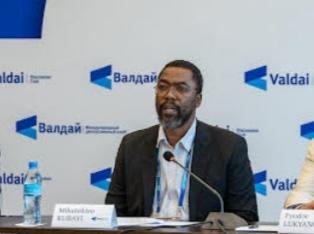Global Issues
Valdai Forum In Tanzania: African Expert On Dynamics And Perspectives Of Russian-African Relations -By Kestér Kenn Klomegâh
A lot was identified as actionable areas. These areas will be carried forward as policy recommendations, material for track one diplomacy to take forward and for track two diplomacy to research and develop further in areas such as the application of technology in both regional and national value chains, investments in domestic production according to identified priority and strategic areas, joint efforts such as in research and development.

The second Russian-African conference of the Valdai Club Foundation was held on July 24 in Dar es Salaam, Tanzania in East Africa. Held under the theme: “Russia – Africa: Strategy for Cooperation in a Multipolar World,” the conference gathered more than 40 experts from Russia and Africa. Its primary aim was to identify new tasks for the research activities on African topics, the areas of substantive cooperation and aspects of new partnership.
The Valdai Club’s pre-conference report underscored the fact that already a year after the St. Petersburg summit, “a confidential and frank expert dialogue seems appropriate in promoting mutual cooperation and effectively implementing the tasks set at the summit.” Reminder: St. Petersburg summit declared ‘Action Plan 2023-2026’ within which to implement those several agreements signed.
In this insightful policy interview, Mikatekiso Kubayi, Researcher at the Institute for Global Dialogue associated with UNISA, Research Fellow: Institute for Pan African Thought and Conversation, Doctoral Candidate, Political Studies, University of Johannesburg, after the 2nd Russian-African conference in Tanzania, offers his expert thoughts and, further discusses the results, expectations and aspects of the challenges that starkly remain in the Russian-African relations. Here are the interview excerpts:
As one of the participating experts, what were some of the most significant questions raised during the July 24th roundtable discussions held in Dar es Salaam, on Russia and Africa?
There were many interesting and important questions. Chief among them were questions on the exact priority areas for African development, technical capacity and development, Financing, and Trade. The roundtable sought to find and even innovate opportunities for collaboration and how to improve mutual gain from each other’s competitive advantage. This was at both bilateral and multilateral levels.
Why Russia’s efforts to regain its economic influence have achieved little tangible (visible) success, why is soft power softer than in Soviet days?
The question is, ‘What would constitute visible success?’. The history of Russia’s engagement with Africa is well recorded. The development of global trade and the politics of global finance is also well-recorded. Africa’s challenges have been and continue to occupy high priority in the global discourse on global reforms, debt and its stifling servicing costs, and so on. Would a visible success constitute Africa’s overnight transformation into the Africa we want? Perhaps the focus should be on Africa’s interest in genuine development partnerships rather than be ‘influenced.’ That is what the relationship is about.
In your expert view, Russia’s economic power, its global status and its staunch membership of the ‘informal association’ – BRICS, how did the Dar es Salaam gathering assess its current investment and business engagement with Africa? Russia is keen to participate in areas that African partners identify as a priority. Technology, Agriculture, Energy, Education, and Health are priority areas. Opportunities for joint efforts, such as in R&D and other collaborative efforts, are explored.
What were some of the setbacks and obstacles identified? Did the gathering also map out strategic pathways to enhance engagement in the economic sectors in Africa?
I believe this was the first roundtable organized in Africa by Valdai in this format and on this issue. The first step has been to engage and explore what has not been done and what can be done. These are two economies with limited financial resources yet many human (intellectual) and natural resources endowments; notwithstanding sanctions and developmental challenges, there was a shortage of joint exploration of priority areas of cooperation, coupled with consistent effort.
We’ve been talking about economic diplomacy between Russia and Africa. And it’s also important to look at the relations as a two-way street. Could you please explain possible reasons why African economic presence is extremely low, compared to Asian countries, in the Russian Federation?
One could argue that its limited presence in the Russian Federation mirrors its development, levels of trade, and other areas that are accepted as needing improvement. The Asian continent has India, China, Singapore, Indonesia, Malaysia, and other economies that have gone through massive development spurts and can leverage particular competitive advantages gained. Africa will also get there.
How do you see the future pathways? What would you finally say about the results of the Valdai’s conference in Dar es Salaam, under the theme: Russia – Africa: Strategy for Cooperation in a Multipolar World?
A lot was identified as actionable areas. These areas will be carried forward as policy recommendations, material for track one diplomacy to take forward and for track two diplomacy to research and develop further in areas such as the application of technology in both regional and national value chains, investments in domestic production according to identified priority and strategic areas, joint efforts such as in research and development.









